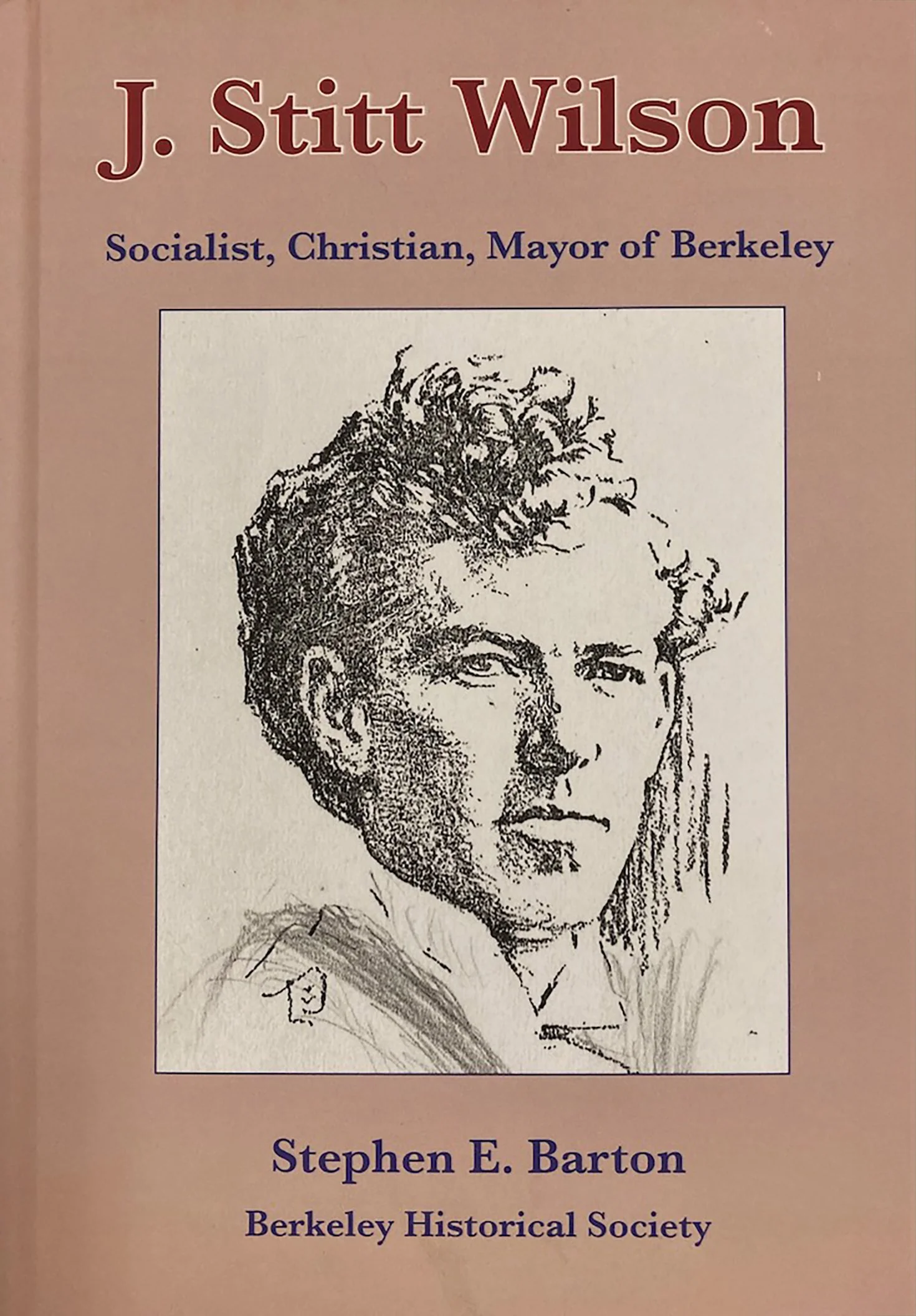Book Review - J. Stitt Wilson
Socialist, Christian, Mayor of Berkeley, by Stephen E. Barton, Berkeley Historical Society, 2021
If you’re at all acquainted with the Golden State’s labor history you’ve probably run across the story of Job Harriman in the 1911 mayoral contest in Los Angeles. Through no fault of his own, labor attorney Harriman, a perennial candidate for office on the Socialist Party ticket—Eugene Debs’ running mate for United States vice-president in 1900, and candidate for various local and state positions after that—suffered a heartbreaking loss through no fault of his own in a race he should have won.
Harriman was the attorney defending ironworker brothers John and James McNamara, accused of bombing the anti-union Los Angeles Times in 1910. When he decided to run for mayor, Harriman turned over defense duties to legendary defender of the damned Clarence Darrow. At that point, as far as he knew, the brothers were innocent. They were not; and once Darrow found out, the plea deal he made to save them from the gallows—without consulting Harriman—included having them confess four days before the election. Inextricably linked in the public mind with the McNamaras, Harriman, who had been the clear frontrunner, instead went down to defeat, and the whole slate of Socialists running for local office, likewise favored, lost with him.
Next to Upton Sinclair’s EPIC (End Poverty in California) run for governor in 1934, Harriman’s defeat is the most well-known campaign by a socialist for a major office in California history; both came close but succumbed to well-designed and heavily funded opposition from conservative business interests.
Unlike Harriman, J. Stitt Wilson, running for Berkeley mayor that same year, prevailed, part of a wave of socialist ballot victories across the country. During his sole two-year term in office he oversaw several “good government” improvements and helped secure funding for needed public services, somehow without the bloody revolution that opponents of socialists usually warn about when they run for office. He supported workers’ efforts to form unions, walked picket lines and spoke at union rallies. His efforts to municipalize the city’s utilities, however, proved unsuccessful.
The similarities between Harriman and Wilson were striking. Both were Christian Socialists, strong public speakers, deeply involved in the national party as well as local socialist activism, close to the local labor movement, and each featured a prominent utopian dimension within their politics. But where Harriman’s utopianism expressed itself, following his turn away from electoral politics, in his endeavors to build socialist micro-communities—first in the Antelope Valley’s Llano del Rio and later in Louisiana—Wilson’s lifelong commitment to Christianity sought to meld socialist values with the example of Jesus’s moral teachings to create a socialist heaven on earth.
I was struck, time and again, at how the outlines of many of the events recounted in the book could be taking place today. The SP a hundred years ago was the model for the “big tent” politics of the post-Bernie Sanders DSA, and that approach to containing multiple socialist tendencies offered the same possibilities and suffered the same conflicts then and now. Although SP support was crucial to Wilson’s election and public speaking successes, factional strife also took time away from more constructive activities. A member of the electoral wing of the party, Wilson sporadically faced unhappiness and denunciation as a sellout at the hands of the revolutionary wing.
J. Stitt Wilson: Socialist, Christian, Mayor of Berkeley is not simply a biography. It’s a window into a time and place when Socialist politics had the broadest impact on local and state civic affairs in American history. And as Wilson pursued his vision of socialist agitation beyond the borders of the city he lived in most of his life, so too the book’s narrative spills over into state and national—indeed, international—struggles and campaigns. For instance, England’s Labor Party hosted him in numerous visits, where he lectured, taught and delivered sermons.
Wilson was in and around the top leadership of the Socialist Party for decades. A captivating and charismatic public speaker, he campaigned alongside Eugene Debs across the country and served in numerous capacities for the national party. The contradictions between his Christianity and socialist politics, which he did not view as a contradiction, manifested in his support for women’s suffrage, which narrowly passed in the 1911 statewide election, on the one hand, and support for the Women’s Christian Temperance Union’s dry (non-alcoholic) policy in local and state elections.
The book doesn’t neglect the personal side of Wilson’s life. Devoted to his family, Wilson nonetheless spent long stretches on the road in political and religious evangelical campaigns, carrying his own shapeshifting, idiosyncratic version of the social gospel to farflung audiences. But when he returned to Berkeley he immersed himself in the lives of his wife and children as much as any Soccer Dad might do today.
Barton notes at the outset that before he began work on this book he was not so familiar with Christian socialism, nor does he share the religious elements of Wilson’s politics. But his scrupulous attention to this aspect of Wilson’s socialism yields some worthwhile questions: What does it mean to say that someone “believes” in socialism? Does holding a Christian worldview make one better or less able to sustain left wing politics for the long term? How does one reconcile the idealist philosophy at the center of religion with the historical materialist outlook of socialism?
J. Stitt Wilson: Socialist, Christian, Mayor of Berkeley doesn’t contain final answers to these perennial issues, nor should the reader expect that it might. Barton’s dive into the weeds on these matters and some of the fine points of municipal socialism in the Progressive era is probably not for everyone, but the book is worth the time for anyone seriously interested in the history of the socialist left in California.

